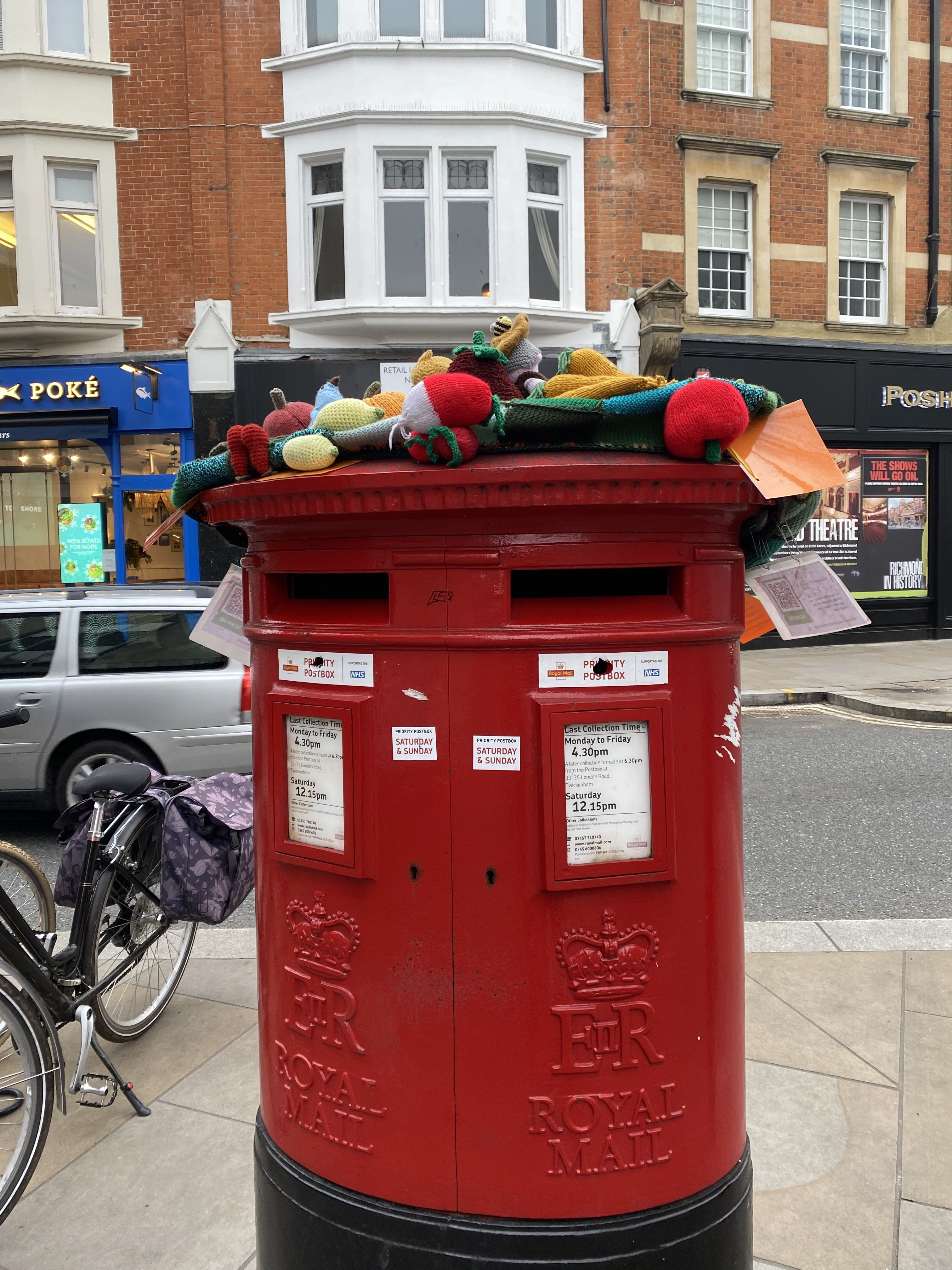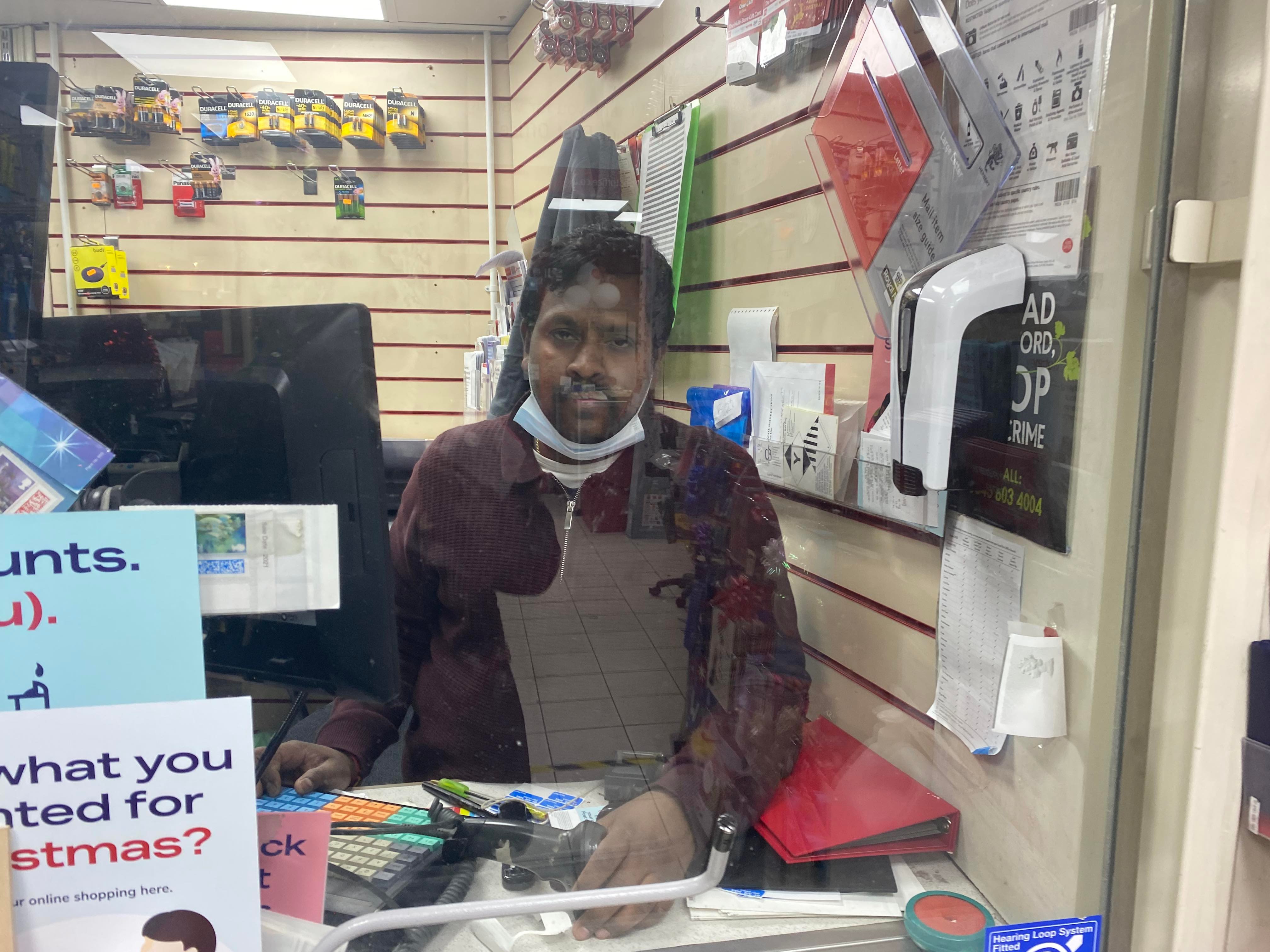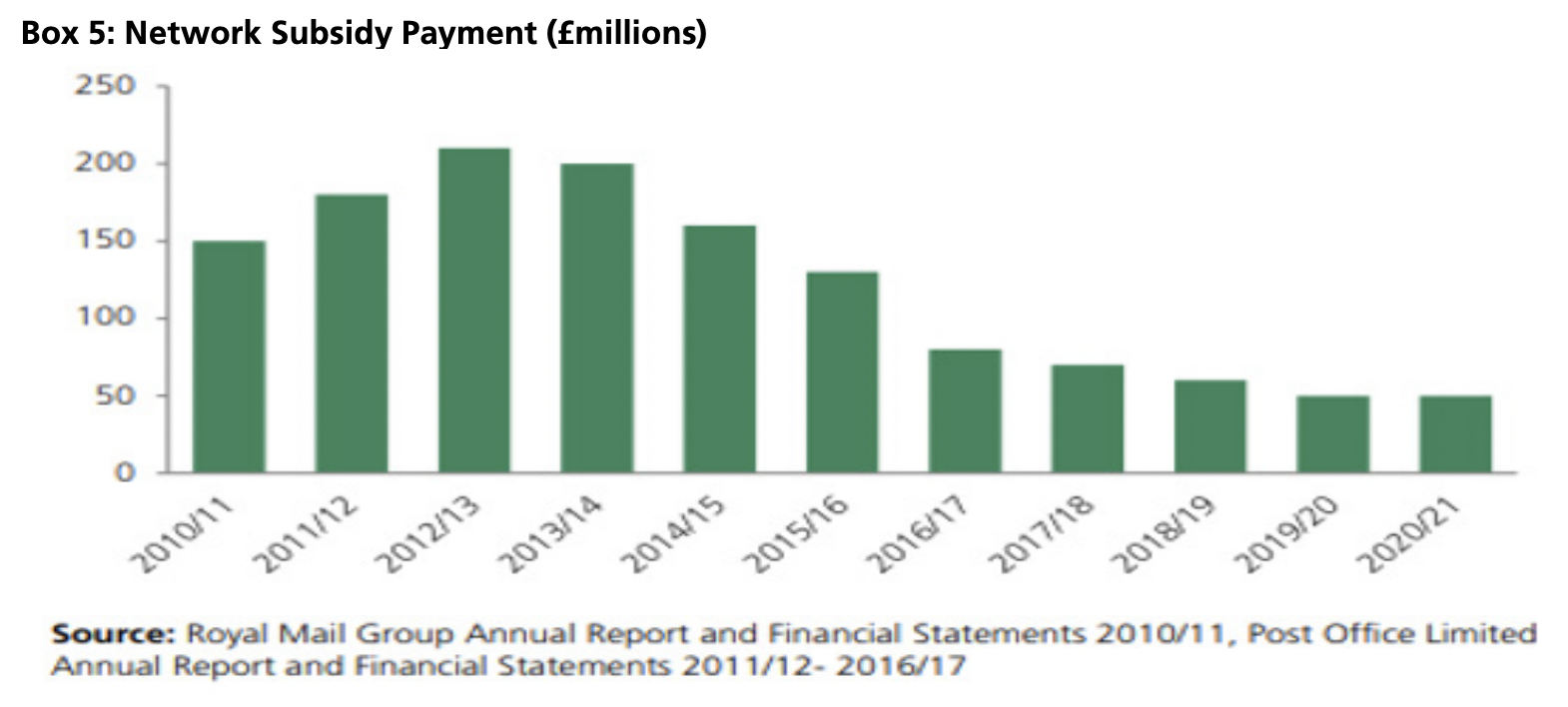Beyond the scandal
What is the future of your local post office?

The current Horizon IT scandal has put Post Offices in the spotlight. Postmasters have been fighting for the past 20 years against convictions of theft and false accounting after the computer system, Horizon IT, showed large amounts of money missing.
So far, dozens of convictions of current and former postmasters have been overturned. Yet the story does not end there.
Postmasters have been voicing the challenges to run their post office for years. The dropping of commissions, changes in the use of post offices and most recently, the Covid-19 pandemic has placed them in great financial difficulties.
SWL spoke to postmasters in London to understand the challenges faced beyond the scandal.


Photo credits: Manuela Brown
Photo credits: Manuela Brown
"It's very hard to smile when you’ve lost everything"
Jaavan Nadarajah, 38, is one of several postmasters worried about the future of his business.
Since taking over the post office in St Margarets, Richmond, in 2014 and investing £120,000, he has been unable to make a decent living due to dropping commission rates from the Post Office Ltd.
In 2019, he laid off his two members of staff as he could not afford to lose any more income. This had a huge impact on his retail business and mental health.
“If I wanted to provide great customer service, I would have two staff members- but I can't.
“I spent a lot of money turning my retail into a convenient store and that did not work. I had stationeries, drinks, alcohol and it didn't work.
"That is because of the area that I am in, unfortunately. I don't see post office customers spending money in the shop."
He expressed that Post Office Ltd has not done enough to support postmasters like himself and regrets investing in a business that has caused him financial and mental hardships.
"I am giving my everything. If I knew any of this would have happened, I would have never put my money in it."
Here, Nadarajah tells his story.
“We get paid rotten peanuts”
Postmasters, Dilip Patel, has also been affected by the low working conditions of running a Post Office.
Patel has been managing his post office business from Kew Gardens for the past 40 years, but has now reached a breaking point.
"Times were good in the good old days, but it is getting harder and harder.
"If you work for an organisation, at least you should be paid a minimum wage, which we do not.
“We get paid rotten peanuts, about six, seven pounds an hour."
Patel is planning to sell his branch soon due to the reoccurring problems with pay and working conditions.
“If they’d paid me a fair wage, I'd stay, but there is no way they are going to pay me a fair wage.
“I have given up you know, I mean, I can do well in retail. But I can't be bothered now.
“Why should I help an organisation which doesn't care about me?” he said.
A Post Office Ltd spokesperson replied to the postmaster's comments with this statement:
"We are incredibly saddened to hear that these Postmasters are having such difficulty operating their branch. There are around 8,000 independent Postmasters across the country who operate a branch or multiple branches, many alongside a retail offering. We know that the pandemic has caused challenges for retailers.
"We guaranteed remuneration during the height of the pandemic and set up a Hardship fund. More recently we set up a Travel Support Fund for eligible Postmasters.
"All Postmasters have a dedicated Area Manager who is there to provide support and advice and we would encourage these Postmasters to reach out to their Area Manager.”
In response to the Post Office Ltd spokesperson comments, Nadarajah said he did not qualify for the remuneration or Hardship support as his income was not below the required threshold during the pandemic. Patel said he was not aware of the Hardship Fund nor received financial support during the pandemic.

Photo credits: Manuela Brown
Photo credits: Manuela Brown
Support available to postmasters
A survey conducted by the National Federation of Sub-postmasters (NFSP) in January 2019 found that 61% sub-postmasters were taking home less income than in the past, 76% earned less than the National Minimum Wage per hour for working in their post office and 22% planned on closing/downsizing/handing-on their post office in the coming 12 months.

The NFSP is an organisations which represents sub-postmasters by providing retail and expert mail support, as well as information, news and analysis.
The Chief Executive Officer of the NFSP, Calum Greenhow, who was previously a postmasters for 23 years, said he understands the financial pressures faced by postmasters today.
However, Greenhow stated that these challenges were brought by government decisions to remove vital services from the Post Office, such as cash withdrawals and bill payments. This means that postmasters can no longer survive without a successful retail business.
“If it wasn't for the investment that my colleagues and I made, our post office network would not exist.
“You've got to be running a business in retail."
Regarding the low commission rates from Post Office falling below minimum wage, Greenhow said that when postmasters combine their post office income with the money generated from their retail business, their net profit increases.
"The most important thing for a business person is the net profit because it tells us how the cash flow of a business is like and what we can take home.
"So if you were to break it down into exactly the amount of work they are actually doing or how many times they have to do a transaction, it comes down to that bit high."
"We want to do everything that we can to help them, but they are self-employed, so there is a limit to what anybody can do on that basis."
Here, Greenhow breaks down why and how commission rates have been falling.
Despite the advice and retail support provided by the NFSP, some postmasters still do to feel fully supported.
Patel expressed that the federation was looking towards the interests of Post Office Ltd rather than postmasters. Nadarajah similarly expressed that their support was not sufficient.
Is social media the solution?
The NFSP said postmasters must begin to embrace social media and promote their retail to attract more customers.
“I’m sure your mobile phone is your protocol and if you need to find out about a product or service you’ll research where you can get it," said Greenhow.
“45% of our colleagues are not online in any way, shape or form- they are not promoting themselves in their community.
"If you're not on Facebook, you're not on Instagram and Twitter, you're not online, customers walk on by” he said.
Postmaster, Nadarajah, said he has been using the social network, Nextdoor, to stay in contact with his local community and highlight some of the challenges he faces.
However, Patel was opposed to setting up a social media presence for his business.
Here is what he said:
In response, the NFSP said that colleagues have a responsibility to modernise their retail businesses.
"Some colleagues don't think they have to change, they think it's up to somebody else to do for them.
"The postmasters that are very successful are because they are constantly working on their business to try and encourage customers to come in and give them some level of service.
"Our role and responsibility is to be alongside them, to encourage them to support them, to give them all the information that they require so they can make the right choice as self-employed business people to move forward," said Greenhow.
He explained that the NFSP is determined to help postmasters achieve a digital presence through training and support.
"We are going to be providing a template so postmasters can go on and develop their own website.
“We will provide them with all they need to do and how to populate it in such a way that it highlights the post office.”

Photo credits: Pexels Tracy Le Blanc
Photo credits: Pexels Tracy Le Blanc